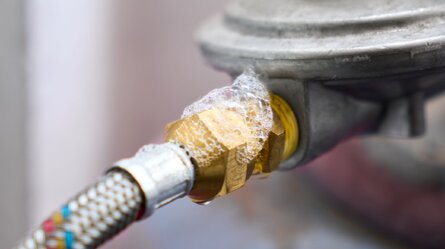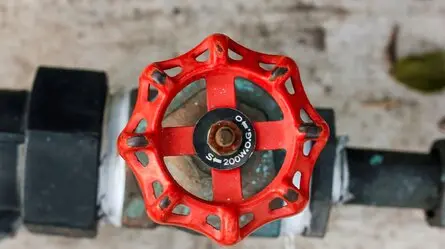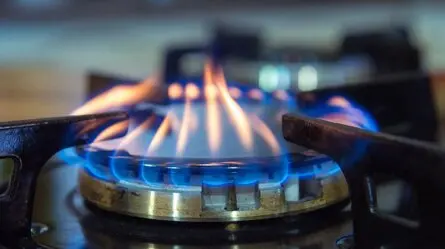In Perth, Australia, stormwater drains are essential for channelling excess rainwater away from residential properties and into local waterways. A blocked stormwater drain can lead to various issues, from standing water in your garden to structural damage in your home.
Spotting the signs of a blocked stormwater drain early can save you from expensive repairs, potential health hazards, and environmental issues. We’ll explore the typical warning signs of a blockage in your stormwater system, delve into what causes these issues, and share tips on how to prevent future blockages in your Perth home.
Importance of Clear Stormwater Drains in Perth
Perth experiences seasonal heavy rainfall, making stormwater drains vital for preventing water from accumulating around homes. Stormwater drainage systems are designed to handle excess rainwater by directing it away from properties.
However, when a blockage occurs, stormwater runoff may not drain effectively, leading to potential issues like flooding, structural damage, and even harm to local ecosystems.
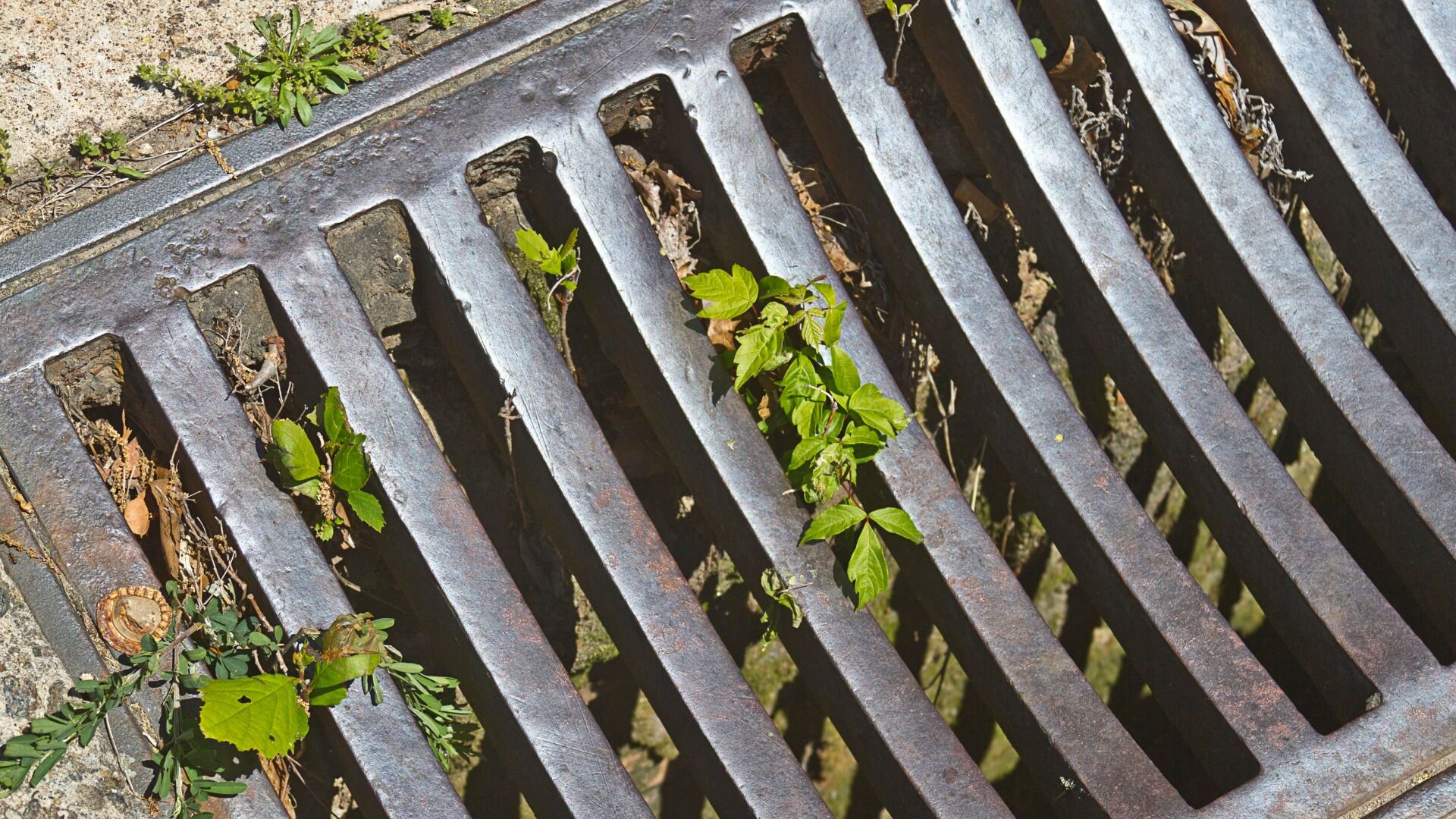
Common Signs of a Blocked Stormwater Drain
Knowing the signs of a blocked stormwater drain can spare you from hefty repairs and inconvenient plumbing issues. Watch out for these tell-tale indicators:
Slow or Standing Water
Slow drainage is often one of the first signs of a blocked stormwater drain. If water drains slowly or standing water accumulates around stormwater pits, it clearly indicates a stormwater drainage issue.
Standing water in your garden can create a breeding ground for mosquitoes and other pests, increasing health risks around your home.
Gurgling Noises and Sounds
Gurgling sounds from your stormwater drain are another common sign of blockages. Gurgling noises typically occur when trapped air pushes through standing water or excess water struggles to flow. These sounds should not be ignored, as they often point to a blocked stormwater drainage system that may require immediate attention.
Unpleasant Odours and Foul Smells
A blocked stormwater drain often emits unpleasant smells, especially when organic matter like leaves and garden debris start to decompose in the pipes. If you notice this foul odour, it’s a definite clue of a blockage, prompting further investigation into your drainage system.
Water Pooling and Puddles
When stormwater drains are blocked, water can pool in unusual areas around your property. This excess water might appear in your yard or near stormwater grates after a heavy downpour, indicating that the drainage system is not working as it should.
Water pooling can also lead to structural damage over time if it repeatedly accumulates near your home’s foundation or interior walls.
Overflowing Roof Gutters and Drain Covers
If your roof gutters are overflowing during heavy rain, it might indicate a blocked stormwater drainage system. When gutters can’t handle the water flow, excess rainwater spills directly onto the ground, potentially leading to erosion and damage to your landscape.
Consider installing gutter guards to help prevent blockages from leaves and other garden debris that can clog your stormwater drainage system.
Causes of Blocked Stormwater Drains
Grasping what causes blocked stormwater drains in Perth can help you avoid future blockages. Here are some common culprits to keep in mind:
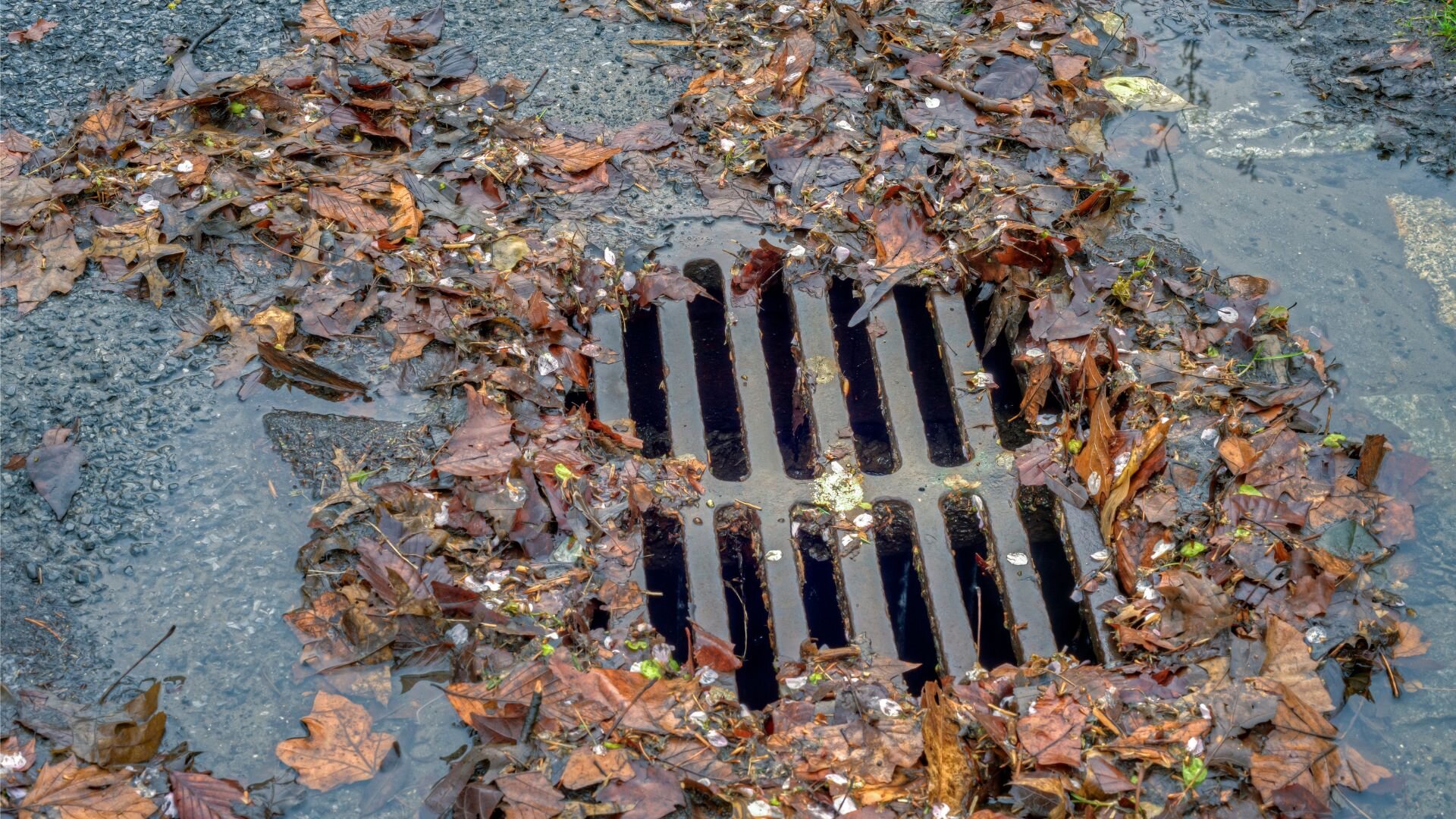
Tree Roots and Root Intrusion
Roots are naturally attracted to the moisture in stormwater drainage systems and can infiltrate even the smallest cracks in underground pipes. Over time, tree roots can grow and completely block water flow, leading to slow draining and severe blockages that require extensive repairs.
Garden Debris and Other Organic Matter
Leaves, twigs, and other garden debris are common sources of stormwater blockages. During heavy rain, this organic matter can wash into your stormwater drains and accumulate, forming a blockage.
Collapsed Pipes and Shifting Ground
Stormwater pipes can sometimes collapse or become misaligned due to shifting ground or soil conditions, particularly in Perth’s clay-heavy regions. Collapsed pipes restrict water flow and may require a professional plumber to locate and repair the damaged drainage system.
Accumulation of Other Debris
Stormwater drainage systems can also become clogged with other debris, including sand, gravel, and small rocks, especially after heavy rainfall. This type of blockage often needs specialised equipment, like a drain auger or high-pressure water jets, to clear effectively.
Risks of Ignoring a Blocked Stormwater Drain
Blocked stormwater drains can wreak havoc on your property, leading to several significant issues if left untreated:
- Structural Damage: When stormwater does not drain properly, it can damage your property’s foundation and other structural elements. Prolonged exposure to water can erode soil, weaken walls, and even lead to cracks in interior walls.
- Environmental Damage and Health Risks: Excess and stagnant water create breeding grounds for mosquitoes and bacteria, posing health risks. Additionally, if blocked stormwater drains lead to water overflow, pollutants from your property may enter local waterways, harming local ecosystems.
- Costly Repairs and Plumbing Problems: Severe blockages in your stormwater drainage system may require extensive repairs, which can be costly. Regular maintenance can help prevent the need for such repairs and ensure your drainage system functions efficiently.
Preventing Blockages in Your Stormwater Drainage System
While some stormwater blockages are unavoidable, several maintenance tips can help keep your stormwater drains clear and minimise the chance of future blockages:
Regularly Clear Garden Debris
Make it a habit to regularly clear gutters, stormwater grates, and other drainage points, particularly after heavy rain or during autumn when trees shed their leaves. This simple task can prevent major blockages.
Inspect for Tree Roots
If you have trees near your stormwater pipes, inspect your system for any signs of root intrusion. A professional plumber can use camera inspection tools to detect tree roots in your stormwater system and advise on appropriate solutions.
Professional Drain Inspections
Hiring a professional plumber for regular inspections of your stormwater drainage system is a practical way to ensure it remains clear. A professional plumber can detect early signs of a blocked stormwater drain, such as slow drainage or water pooling, and address them before they develop into major plumbing problems.
High-Pressure Water Jets and Drain Augers
Consider using high-pressure water jets or a drain auger to clear minor blockages in stormwater pipes. These tools can effectively break up garden debris, organic matter, and other obstructions that may cause blockages in your drainage system.
However, for severe blockages or if the blockage reoccurs, contact a professional plumber to perform the task effectively and with minimal disruption.
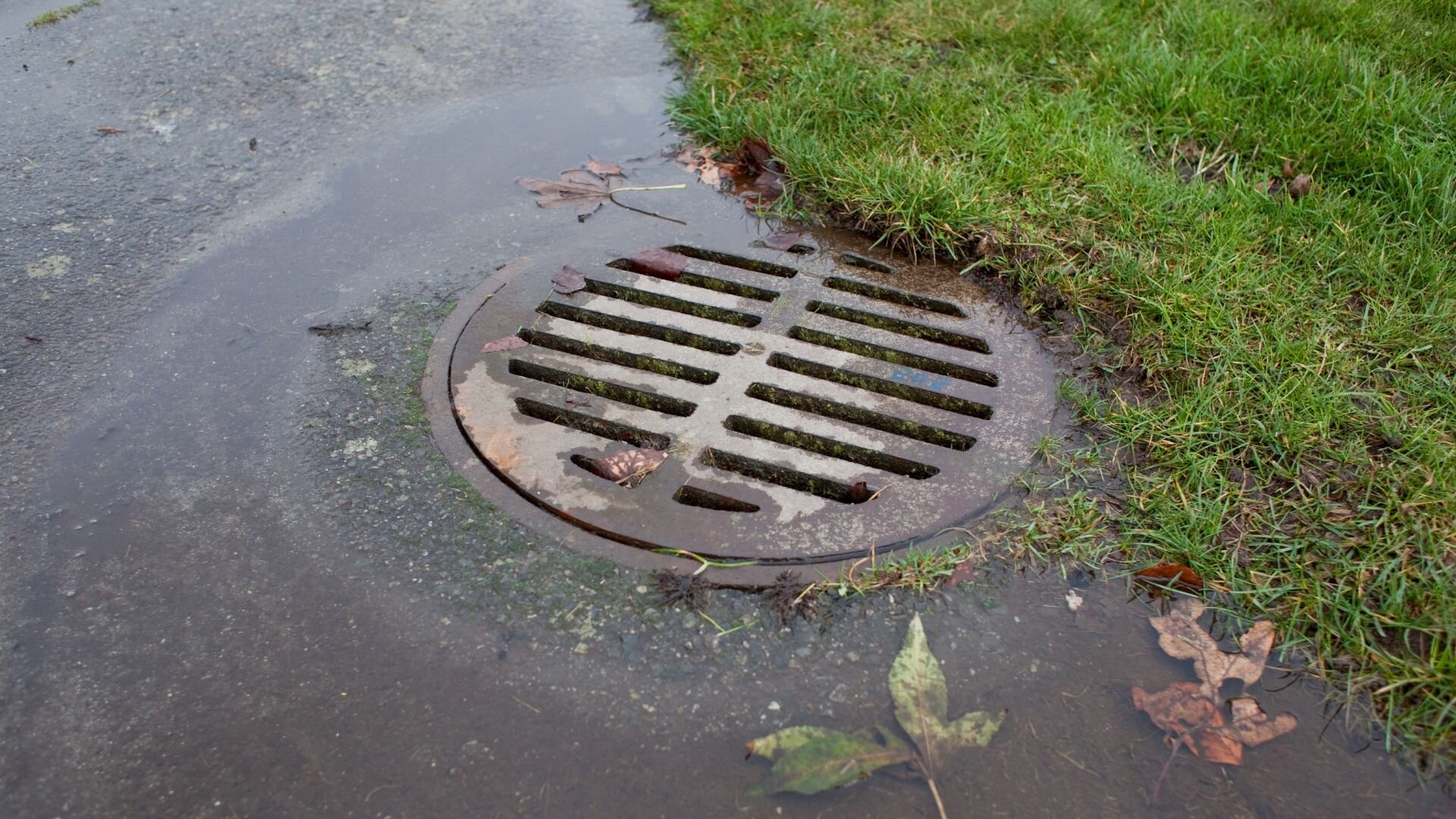
When to Call a Professional
Some blocked drains may be cleared with DIY methods, but a professional plumber has the expertise and equipment to handle blocked stormwater drains safely and effectively.
Consider contacting a professional if you notice persistent signs of a blocked stormwater drain, such as foul smells, gurgling sounds, or water pooling. They can also inspect your system for potential issues like collapsed pipes, clogged drains, and stormwater blockages that require specialised tools.
Protecting Your Perth Home from Blocked Stormwater Drains
Blocked stormwater drains can pose serious risks to your Perth home, including structural, health, and environmental damage. Early detection of a blocked stormwater drainage system can prevent extensive repairs and costly disruptions. Regular maintenance, such as clearing garden debris, inspecting for root intrusion, and consulting a professional plumber, can ensure your stormwater drainage system functions optimally.
By preventing blockages, you’ll keep your stormwater drains flowing smoothly, protect your property, and contribute to a healthier local environment. If you’re experiencing any signs of a blocked stormwater drain or need professional assistance, contact our team at Woolf Plumbing & Gas in Perth!
Stormwater Drain FAQs
How to check if a stormwater drain is blocked?
To check if a stormwater drain is blocked, look for signs such as water pooling around the drain, slow drainage, or gurgling sounds from the pipes.
You may also notice unpleasant odours near the drain or an overflow during heavy rainfall. If you see these indicators, your stormwater drain may be blocked, and it’s wise to address the issue before it worsens.
How can I tell if my drain is blocked?
A blocked drain often shows signs like slow draining water, water backing up in sinks or showers, or foul smells coming from the drain. Gurgling sounds from pipes can also indicate trapped air caused by a blockage. If your drain shows any of these signs, an obstruction likely needs clearing.
How do you clear blocked stormwater pipes?
To clear a blocked stormwater drain, start by removing any visible debris from drain covers or grates. For tougher blockages, you might use a high-pressure water jet or a drain auger to break up and remove debris within the pipes. In cases of severe blockages or root intrusion, it’s best to contact a professional plumber who has the tools and expertise to handle the job effectively.
What happens when water goes down a storm drain?
When water flows down a storm drain, it’s directed into the stormwater drainage system, which channels it away from residential areas and into local waterways.
This system helps prevent flooding and property damage by efficiently managing excess rainwater. However, if the storm drain is blocked, water can back up and overflow, leading to potential flooding and environmental harm.


